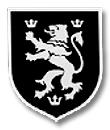
Andrew Korybko
Andrew Korybko is the Master’s Degree student at the Moscow State University of International Relations (MGIMO).
Poland has been exploiting the destabilization of Ukraine in order to expand its influence further East at Russia’s expense. Together with Sweden, Poland launched the EU’s Eastern Partnership initiative in 2009. This was commenced specifically with the purpose of spreading Brussels’ (and Warsaw’s) sway over the non-member states on the Union’s periphery. It is also a Trojan Horse for future NATO expansion. Poland has in the past decade been jockeying for a leadership role in the EU, and the Eastern Partnership provided amble opportunity for the country to prove its importance to its NATO and EU patrons. Focusing specifically on Ukraine, Poland has unique cultural, political, linguistic, and historical ties there, especially in the areas of Western Ukraine that used to briefly be part of the Second Polish Republic. Warsaw’s political establishment has exploited these ties not only to encourage internal disruption in Ukraine (at the expense of Russia having a stable economic partner), but also to institutionalize Poland’s role as the sub-regional hegemon over the western portion.
Logo: Divisional symbol of the 14th Waffen Grenadier Division of the SS (aka SS "Galician”), notorious for multiple war crimes and atrocities against Soviet and Polish civilians in 1941-1945.
Opposition outreach
The Polish government has issued very strong statements in support of the ‘protesters’, even going as far as to declare "full solidarity” with them, thereby nullifying any claim to impartiality that they may have previously aspired to have. Now, Poland’s Prime Minister has directly interfered in the domestic turmoil.
As the rioting in Ukraine continues to spread westward, Prime Minister Tusk spoke by telephone with opposition leader Arseniy Yatsenyuk last Sunday, stating afterwards that "We support Ukrainian democrats in their efforts to achieve a fair and wise agreement”. Poland has thus passed the threshold from official statements to actions, as the Polish government wants the world to know that it has dialogue channels open with the ‘opposition’, and this infers a level of influence over its leaders and official government support of their actions. Interestingly enough, this public revelation of contact with Yatsenyuk and support of his "Ukrainian democrats” makes Poland complicit in the coup that Ukrainian Prime Minister Azarov (who has resigned today – OR) alleges is in full motion within his country. Azarov goes on to state that "It’s a real coup attempt, and everyone who backs this coup should clearly say ‘Yes, we support the overthrowing of the lawful administration in Ukraine,’ instead of hiding behind peaceful protesters.”After officially associating with Yatsenyuk, one of the prime coordinators of the unrest, and endorsing his "Ukrainian democrats”, Poland has irrevocably proven itself to be in support of regime change.
Poland’s previous political provocations (to say nothing of the contact with Yatsenyuk) were not lost on the citizens of Kharkov, who on 23 January protested at the Polish consulate there, "demanded the closure of all Polish diplomatic missions in Ukraine, [and claimed] their staff were representing an enemy nation”. Quite clearly, the Polish diplomatic missions in Ukraine have now taken on the de-facto role of coup-supporting institutions, thereby making them actual enemies of the Ukrainian government. The same goes for Germany, which has a special relationship with permanent resident and UDAR provocateur Klitschko, who is for Germany what Yatsenyuk is for Poland – a proxy fighter in a larger geopolitical struggle against Moscow. The most honest thing that Warsaw and Berlin could do now is follow Azarov’s advice and proclaim "Yes, we support the overthrowing of the lawful administration in Ukraine”, as their actions demonstrate nothing less.
Looking for Galicja
Poland’s foreign policy towards Ukraine has been very assertive. Besides jointly taking the helm of the Eastern Partnership, strongly voicing support for the Ukrainian destabilizers, and publicly parading its connection to Yatsenyuk, it is now among the league of countries threatening sanctions against Ukraine. Poland’s foreign policy offensive against the Ukrainian government is designed to place it into the best position to enter into possible post-conflict multilateral negotiations, a proposal now being floated around by the influential Carnegie Endowment think tank. In defending their proposal, the authors assert, "Don’t underestimate how hard Poland has worked to revamp the EU’s Eastern Partnership initiative. Sikorski and his experts know the region extremely well, having spent the past several years working with the leaders and civil-society movements in Belarus, Georgia, Moldova, and Ukraine.” Sikorski and the Polish government’s involvement with the aforementioned "civil-society movement” leaders is an indication of intimate association with Ukraine’s coup organizers, and of course, it should not be underestimated.
Poland would like nothing more than to legitimately institutionalize its influence over Ukraine (especially the formerly Polish western half) by being internationally recognized as taking part in any multilateral negotiations to end the Ukrainian crisis. This would be an implicit admission of Poland’s new sub-regional hegemony in Eastern Europe, and it would contribute to the regional fragmentation of the country. The areas under Poland’s sphere of influence would more radically gravitate west, thereby cementing the dual East-West nature of the current Ukrainian identity. Instead of resolving regional differences, it would only exacerbate them, as Poland would encourage Western Ukrainian ‘separateness’ in the political, linguistic, and cultural domains. It is also probable that the protesters’ western nest (Lviv and the surrounding environs) may seek to declare autonomy on par with the Crimea, with Poland, Germany, and the entire EU (read: NATO) as future guarantors of its legal status.
Including Poland (or any Western [NATO] state) into any post-conflict negotiated settlement would be akin to letting a fox into the henhouse, as it would legitimize the previous violations of Ukrainian sovereignty by the West, entrench Western Ukraine’s regional oppositional identity to the rest of the state, and possibly allow NATO a foothold in carving up Ukraine at a more politically convenient time in the future.




_jpg/250px-ElbeDay1945_(NARA_ww2-121).jpg)





